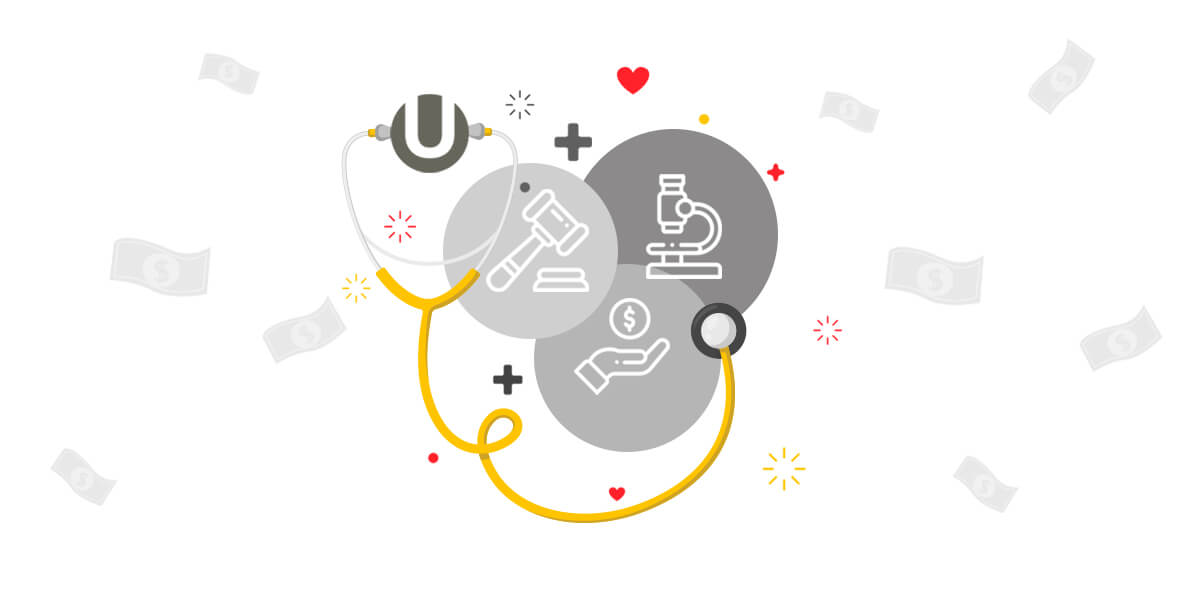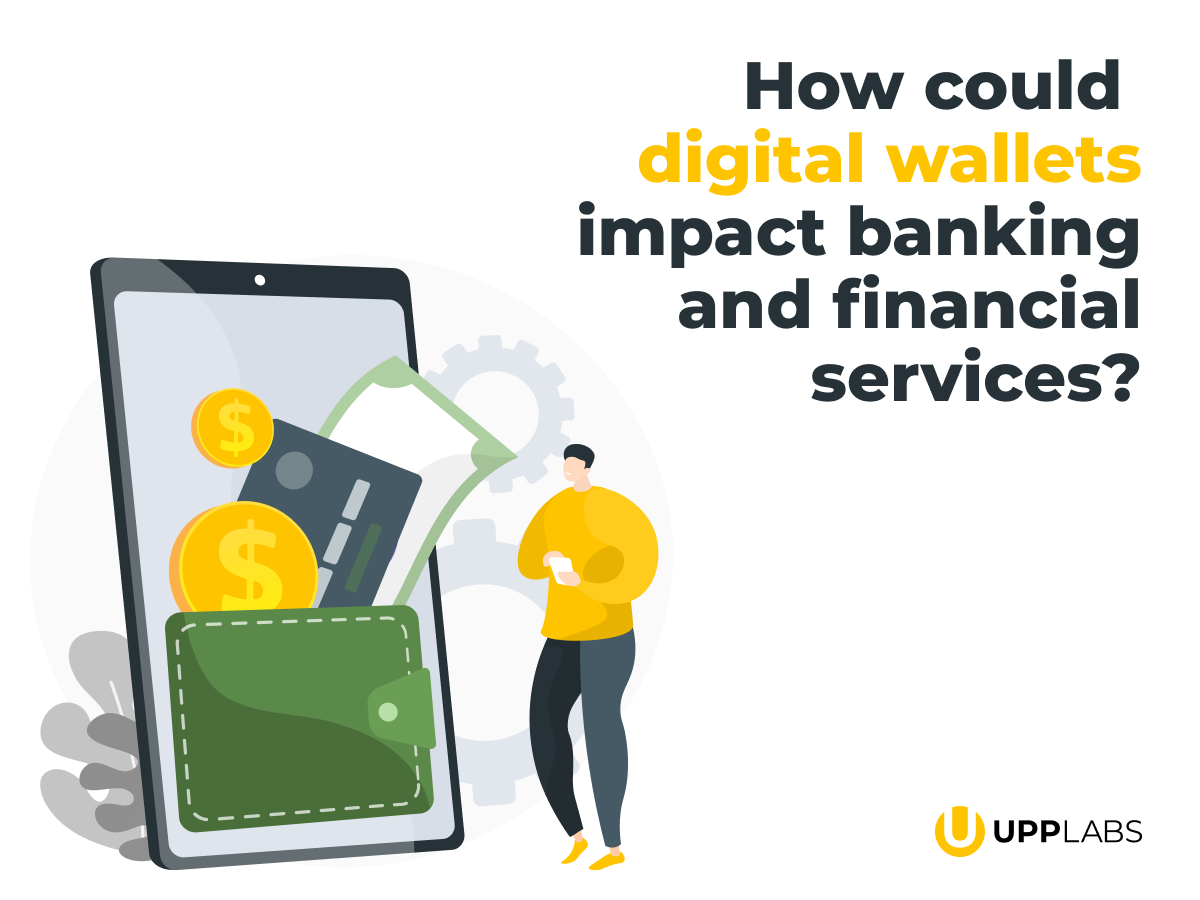Healthcare remains one of the largest and fastest-growing industries in the world. As an industry expert, with the start of the COVID-19 epidemic, UppLabs was interested in finding out how the outbreak influenced the state of the industry and what changes business owners were forced to accept. But even regardless of the current situation with quarantine, there are some healthcare industry challenges that still remain a concern among healthcare business owners.
Healthcare survey
The American statistics data show that “lack of investment” was the challenge most of the respondents of the survey faced – 33,3%. The next big challenge was “Government issues”. “Problems with vendors” was on the 3rd place. Among the other survey data are:
- 91,7% of respondents said that the current situation forced them to consider rethinking the business processes and approaches.
- 66.7% of respondents don’t use innovations and automatization.
- 75% of respondents coping with the current (pandemic) situation by adapting innovations to ease the business and operational processes.
- 58.3% of respondents see great opportunities in the current situation. And less than 30% “hoping for the better”
- Most of the respondents (33%) represented ambulatory healthcare services. About 17% of respondents were physicians or other healthcare practitioners, 8,3% – biotechnology, 8% – health insurance, 8% – health equipment.
- Compared to other countries, the US spends twice more on Healthcare.
- Global Healthcare spendings could reach over $10 trillion by 2022.
If you haven’t participated in our survey – you still have a chance! Your voice matters:
General trends in Healthcare
The ability to predict industry innovation is extremely important to venture capitalists and others interested in the healthcare industry. However, just learning new technologies is not enough. It is important to understand the purpose of the innovations and examine the problems they are aimed at solving. A clear understanding of how health care delivery is changing provides a broader understanding of how new technologies can improve health services or solve arising problems. Among the key trend in Healthcare industry of 2020 are:
- Lack of digitalization in Healthcare, outdated legacy platforms, cost, and complexity of new technologies, cybersecurity.
- About 60% of workers in Healthcare say that their work requires manual entry or analysis.
- Trending technologies in Healthcare for 2020 are cloud computing, 5G, AI, NLP, IoMT (Internet of Medical Things). They help to streamline healthcare delivery and align it with consumer preferences.
- Investing in tools and services to identify the risks and opportunities of implementing virtual healthcare solutions. The creation of simulators based on virtual reality technologies can significantly improve the quality of training for doctors and reduce the number of medical mistakes.
Challenges of the healthcare industry
The healthcare industry is experiencing many changes that lead to new challenges. In particular, the fast-developing government regulations, technological innovations, expenditures, and financially unstable situations as well as patient expectations establish a new environment where medical practice includes much more than just treating patients.
1. Financial challenges
Global health industry expenditures are expected to grow. They are going to increase by 5.4% annually till 2022. The financial performance of the healthcare economy is influenced by a number of factors, including:
- the need for personalized medicine,
- the spread of exponential technologies,
- market entry of companies creating new and unconventional competition,
- demand for medical centers with expanded services and improved payment models,
- public funding.
Healthcare market experts are actively seeking the latest technologies, as well as partnerships. Stakeholders are also exploring alternative sources of income, such as vertical integration. Healthcare facilities emphasize the need for rigorous financial management, operational performance, and health outcomes, as well as the development of innovative solutions. All this can improve the medical care quality, reduce costs, and create a coherent structure of costs and models of healthcare in accordance with current trends and models of payment for medical services.
In order to reduce cost and increase medical services quality, there’s now a tendency toward finding out financial incentives based on patient outcomes. Customers are requiring new payment models, such as bundled payments, global payments, disbursement to healthcare providers, and shared savings. All this can help to coordinate services better, promote preventive care, and encourage healthcare medical providers.
2. Regulatory challenges
The emergence of clinical innovations and medical Internet devices, as well as the challenges and problems that exist within the market environment, further exacerbate the need for public policy review, regulations, and risk management systems. Recently, the rapid growth of “consumer” services, such as the regulation of prescription drug prices in the United States, has attracted much attention from regulators. Ensuring cybersecurity is another priority for the industry. Large amounts of valuable data and growing demand for interconnected IT environments make the healthcare sector an attractive target for cybercriminals.
Although government policies and regulations are designed to protect and enhance the healthcare industry, managers should focus on regulatory and ethical compliance, risk management, and employee awareness. Organizations need to invest in crisis management to help develop and optimize their ability to withstand cyber threats.
3. Technological challenges
The scale of innovation in digital healthcare is growing exponentially. Digital technologies support healthcare systems’ efforts to move to new models of patient care and help them develop “smart health” approaches to improve the availability and quality of care and reduce costs. The healthcare industry is highly transformed by the use of such technologies as:
- Blockchain
- Process automation
- Robotics
- Cloud computing
- Artificial intelligence
- Internet of Medical Things (IoMT)
- Digital and virtual reality
These technologies help in the diagnosis and treatment of diseases, improve the quality, speed, and efficiency of medical care, as well as optimize the patient experience.
Investing in digital technologies in health care can contribute to more efficient use of medical data in research, which will support initiatives to personalize health care.
There the technological challenges that arise together with the appearance of healthcare innovation, such as:
- Interoperability issues and risks associated with Internet devices
- Disparate systems and processes
- The need to scale up experimental models to facilitate system-wide implementation
It’s important to understand that digital innovations do not replace people and the medical community, but, on the contrary, facilitate their work and expand opportunities. This allows highly qualified healthcare professionals to focus on more important tasks that involve direct communication with the patient.
If you run a business in healthcare, you can take this quiz to identify potential problems and challenges:
Dealing with healthcare challenges
Based on the best practices and experts opinion of coping with the main healthcare challenges of the upcoming year, we can highlight the following recommendations for healthcare providers:
Regulatory challenges
- They need to remain on top of regulatory developments so they can place their companies for the opportunities and challenges that may arise as a result of changes;
- They need to get up to accelerate on the changes and ensure that existing relationship and regulations are compliant;
Financial challenges
- They should be initiated in processing programs to educate patients and make pricing for them less tough;
- They need to advance their ability to set their own pricing data, the operationalizing capabilities, and then continuously adjust the effects of their actions;
- They need to protect relationships with stakeholders, as well as with contractual counterparties, patients, and regulators.
Technological challenges
- They need to create a culture of “cyber hygiene;
- They should create plans for preventing an attack and mitigating harm, as well as warning those who have been affected;
- They need to switch their focus on concrete innovative solutions to the problem;
- They should use the latest IoT tools to automate the work and connect with their patients;
- They need to use modern solutions for data analysis and prognosis to prevent diseases and prescribe treatments in advance: AI and ML libraries;
- They had to stay tuned about compliance and other policies.
What UppLabs can offer
Over the last 5 years, we mastered our skills and gained experience in creating innovative, reliable, secure, and sophisticated healthcare products and applications. UppLabs obtain a strong Healthcare industry expertise, so if you’re looking for help, we’ll be glad to assist you!
We provide business and software development support during the COVID-19 pandemic.
UppLabs is proficient in:
- Data management solutions for hospitals and clinics
We create highly reliable systems to support interactive communication between doctors, patients, and medication suppliers to improve the quality of healthcare. - Complex system integration with medical devices and medical software
UppLabs actively uses the best cloud-based platforms Google, Amazon, Microsoft, and the best world practices to build secure and reliable solutions for our clients. - Custom healthcare web and mobile applications’ development for:
- Symptoms identification and analysis systems that automatically connect users with a particular doctor
- Staff and patient management systems in clinics
- Health monitoring systems
- Doctors’ marketplace
- Online consultation systems
- VR and AR healthcare software development
UppLabs deliver end-to-end virtual, augmented, and mixed healthcare reality solutions for all popular devices. - Development of HIPAA-compliant and secure software
We have huge experience with compliance and security regulations in the healthcare industry.
Ask UppLabs about the experience of working with top-notch digital healthcare solutions!



